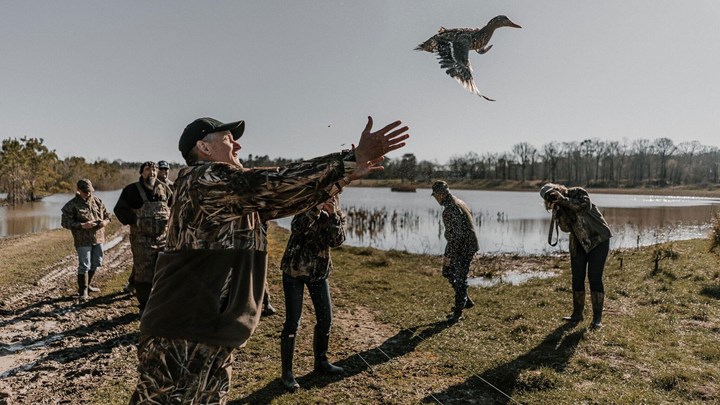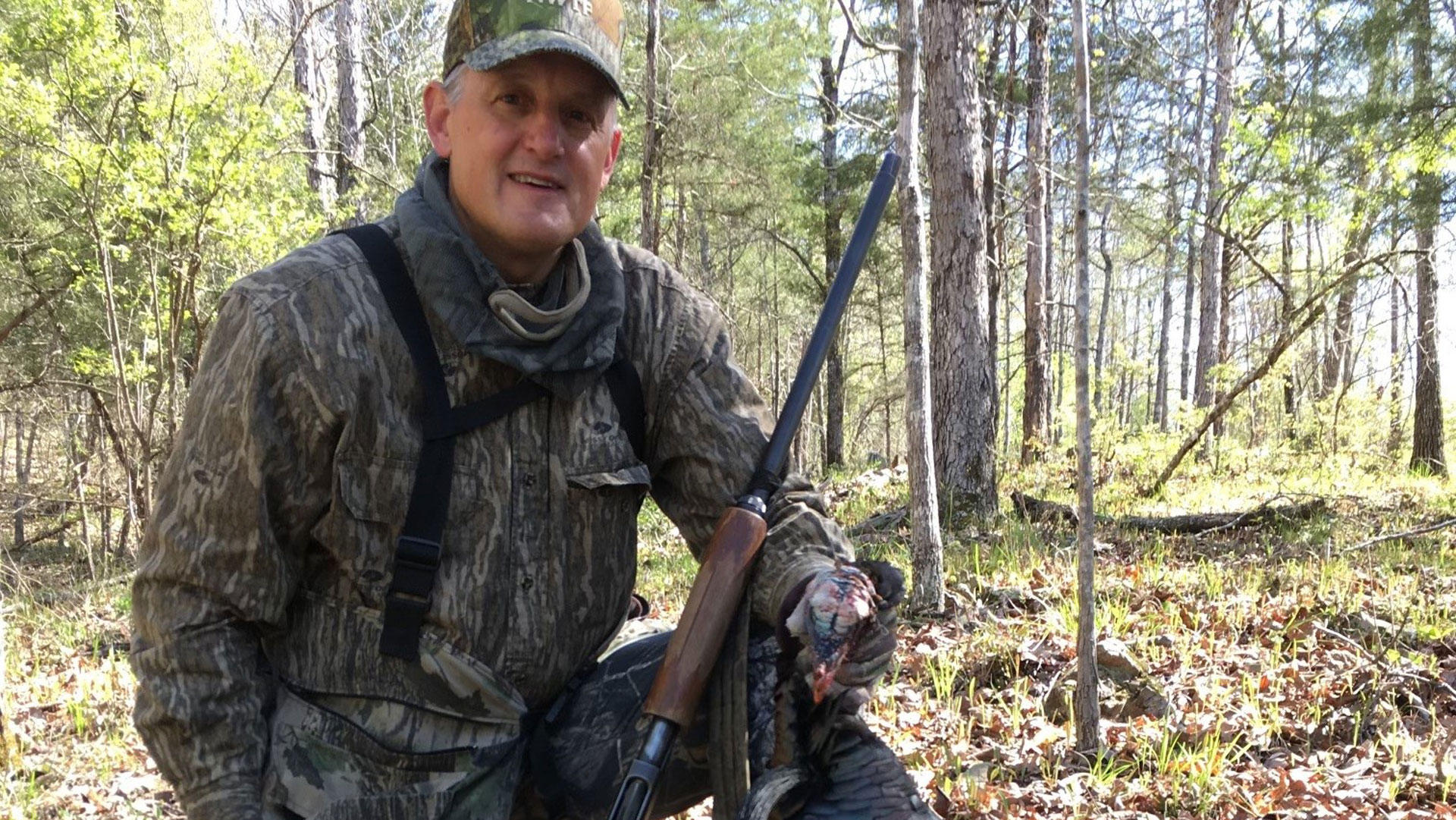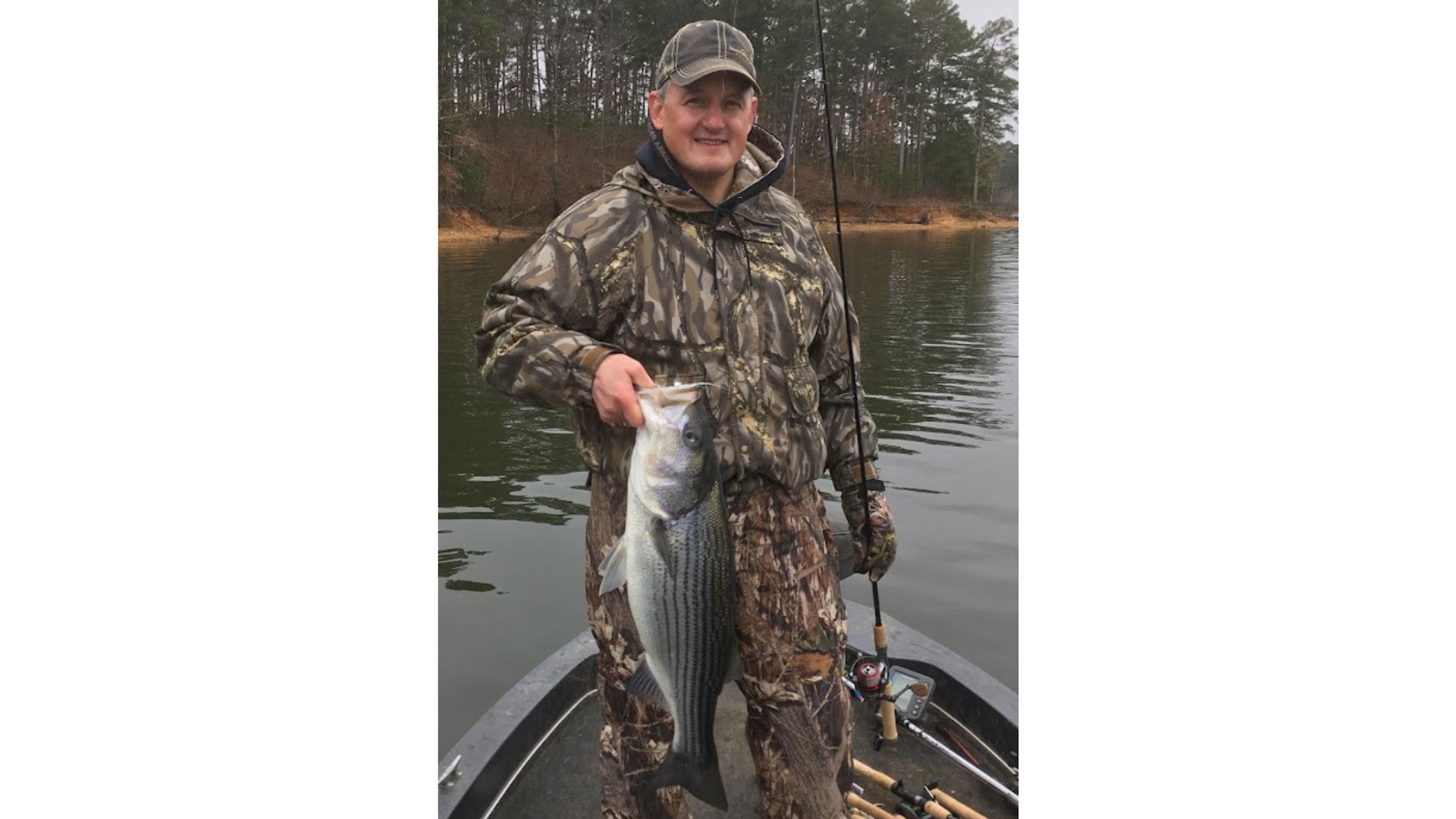
by Karen Mehall Phillips - Monday, July 24, 2023

Elected to Congress in 2014, Rep. Bruce Westerman of Arkansas (R-04) is a proud sportsman and wildlife conservationist who stands with America’s gun owners and NRA members. Acting on his belief that fish and wildlife are public trust resources to be sustained for future generations, he serves on the House Committee on Transportation and Infrastructure and as Chairman of the House Committee on Natural Resources.
Prior to serving in Congress, this lifelong hunter and angler served two terms in the Arkansas General Assembly, where he became the state’s first Republican House Majority Leader since Reconstruction. An engineer and forester by trade, he worked for 22 years at Mid-South Engineering and in 2013 was named Engineer of the Year by the Arkansas Society of Professional Engineers.
A 1990 graduate of the University of Arkansas with a bachelor’s degree in biological and agricultural engineering, Westerman was also a four-year walk-on member of the Razorback football team. He was awarded the Outstanding Young Alumni Award in 2005 and the Distinguished Alumni Award in 2012. He is also a graduate of Yale University, earning a master’s degree in forestry in 2001. He lives in his native Hot Springs with his wife, Sharon, and their four children.
It was a privilege to catch up with Westerman as he shared his priorities in service to his constituents and the American people. The NRA is proud to stand with him as he approaches his role with a common-sense, problem-solving mindset, conducting congressional oversight and developing and voting on legislation that delivers results.
I was born and raised in Hot Springs, Ark., where I still live today. I grew up in a family that loves to hunt, fish and enjoy outdoor activities. My dad is a big hunter, and he started taking me hunting when I was very young. I was fortunate to live in a remote area with 5 miles of dirt road to the closest piece of pavement. So, when my brothers and I wanted to go hunting, we went to the gun cabinet, got a rifle or shotgun, and out the door we went to hunt squirrels, rabbits, turkeys and deer.

Some of my earliest memories are of following my dad through the woods and him teaching me to be quiet as I walked. I would try and step in his same footprints. There are many deeper things that come from that. When you’ve got a great father and you’re trying to walk in his footsteps, that’s a neat experience in itself. You don’t realize at a young age how much you learn from your time spent outdoors.
The Natural Resources Committee has broad jurisdiction, and we have several subcommittees. We have Energy and Mineral Resources, Federal Lands, Indian and Insular Affairs, Oversight and Investigations, and Water, Wildlife and Fisheries.
In the Energy and Mineral Resources Committee, we’re focused on energy development on federal lands and waters. We’re also focused on mining. These issues are critical to the country and affect not only our energy security, but our national security and economy.
As for the committee’s priorities, we’ve already passed legislation that became H.R. 1, the Lower Energy Costs Act. If you ask the Republican Conference, it will say that H.R. 1 was the highest priority of this Congress. The bulk of the material in H.R. 1 came from the Natural Resources Committee.
There are a lot of other things I enjoy working on as well. The Subcommittee on Federal Lands deals with forestry. Having an educational background in engineering and forestry gives me a good understanding of what it takes to create good habitats for wildlife and outdoor recreation—something I’m passionate about.
The Subcommittee on Water, Wildlife, and Fisheries also plays a big part. We deal with areas that are important to outdoorsmen, to everyday life, to outdoor recreation. We need to enhance habitats to have more places to hunt and fish. This ties in with forestry and our Federal Lands Subcommittee because good forest management provides great habitats for wildlife and endangered species. Forest management, fisheries and wildlife habitats are all important issues that fall under the Natural Resources Committee, and even get into the regulation of sport fisheries and offshore wildlife.
The Subcommittee on Indian and Insular Affairs deals with tribes, territories and freely associated states. Our tribal partners have done a phenomenal job managing their land. Some of the country’s best wildlife habitats are on tribal lands. That’s why we need to work with our tribes on wildlife and fisheries management, and that’s a big priority for the committee.
This was an attack from the Biden administration on the Second Amendment. It goes after anything firearms related. If these people could put lead ammunition manufacturers out of business, I think they would see that as a feather in their cap. They have a preservation mindset and think, “I’m all about conservation and we’re good stewards.” Many on the far left want a hands-off approach. Instead of opening access for people, they want to deny access. It’s a contentious issue for me. You can’t preserve nature because it’s living and changing all the time. They seem to want fewer and fewer people out enjoying it. There’s no benefit to their ammo ban. It’s a politically motivated action that, at the end of the day, just drives up costs for outdoorsmen. This is just another Biden administration overreach.
I’d especially like to see shooting ranges across our federal lands to give people more access to places to use their firearms. We also must do a better job of recruiting young people. This would not only aid conservation in the future, since most conservation is fueled by hunting and fishing, but it would be good for society to get kids away from their screens to connect with the real things in life—the things I have such fond memories of as a child. There are encouraging things happening around the country. In Arkansas, there are shooting and archery clubs in high schools and other programs aiming to get young people outdoors. We also have special youth hunts and free fishing days and we’re continually working on new ways to entice youngsters to enjoy the shooting sports and the outdoors.
Yes, the Endangered Species Act (ESA) is a topic we desperately need to weigh in on, and we have legislation to address it. We need an ESA that actually protects endangered species—not something that’s weaponized by radical environmental groups to stop hunting and any wildlife management on federal lands. We say that the ESA is like Hotel California—once a species gets on, it can’t get off—so we want to change that. I’m a firm believer that the best way to help any species is to have better habitats. We’re focusing on legislation that prevents the ESA from being weaponized.
For example, the U.S. Fish and Wildlife Service (USFWS) only has so many days to respond to a petition to list a species. Groups figured out they can file many petitions on the same day and the clock will run out for the USFWS to be able to do the research to determine whether a species must be listed. So, they automatically get listed. This not only abuses the system, but it takes USFWS employees away from helping endangered species. There are many things that can be changed to make the ESA work better.
We’ve also got to address problems within the USFWS, which seems more concerned with wokeism. We’ve got to know why it has sponsored things like “eco grief” counseling, and why it is putting such emphasis on employee diversity and equity rather than on qualifications. The USFWS has to be the USFWS. It’s more like the U.S. Fringe and Woke Service. It lost its focus and mission.
It was never a long-term goal to serve in Congress or even the state legislature. When I played college football, my coach always stressed that there was no such thing as luck. It’s where preparation meets opportunity. I had the opportunity to run for the school board. I served for several years and was encouraged to run for the state legislature. I felt like my life and educational experiences had prepared me. I ran for the Arkansas General Assembly unopposed. I was the minority leader at the end of my first term and the majority leader going into my second term. You can only serve three two-year terms in the Arkansas House, but [Rep.] Tom Cotton decided to run for Senate, so I was encouraged to run for that. Now here I am in Congress, trying to bring common sense and science-based solutions to the forefront.
As we do this interview, I’m getting ready to leave Washington, D.C., and travel home. This is the first week of turkey season in Arkansas, so I plan to be on top of a mountain tomorrow before daylight listening for gobblers. As for a bucket list hunt, I grew up in Arkansas hunting everything: quail, squirrels, rabbits, turkeys, ducks, deer. They’re still my favorite things to hunt. I have been elk hunting and I can see the similarities to turkey hunting, so I think I could get into that more. I just love hunting and I love to do it in Arkansas where I grew up, but I’m up for any adventure.
My dad is the best shot, and I’m the best shot among my two brothers—and I hope they read this to know I said that. Deer hunting always draws us together, but I think we enjoy turkey hunting the most..

As for fishing, it’s hard to beat crappie fishing on Lake Ouachita. That’s my favorite. I grew up fishing in Arkansas all year long. I’m fortunate that within a few hours of my house I can catch just about any species of freshwater fish—from crappie, brim and bass to walleye, stripe bass, white bass, hybrid bass, world record trout, rainbow trout—all inside the boundaries of the Natural State and in Arkansas’ fourth district where I reside.
Hunters need to realize their voices count and that they're a strong force in this country. Get involved in associations and outdoor groups that have a presence in Washington, such as the NRA and others that do such great jobs on conservation and advocating for hunting, fishing and Second Amendment rights.
For more on Rep. Bruce Westerman, visit brucewesterman.com Bruce Westerman for Congress
Follow the House Natural Resources Committee on Instagram: @natresources
E-mail your comments/questions about this site to:
[email protected]
Proudly supported by The NRA Foundation and Friends of NRA fundraising.
